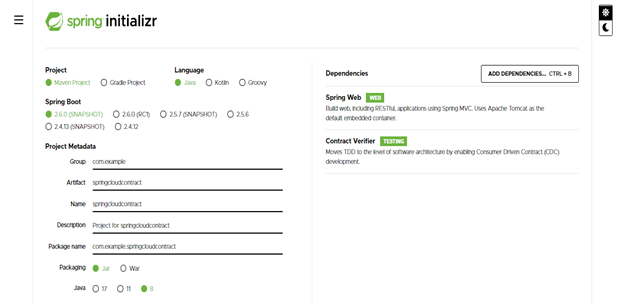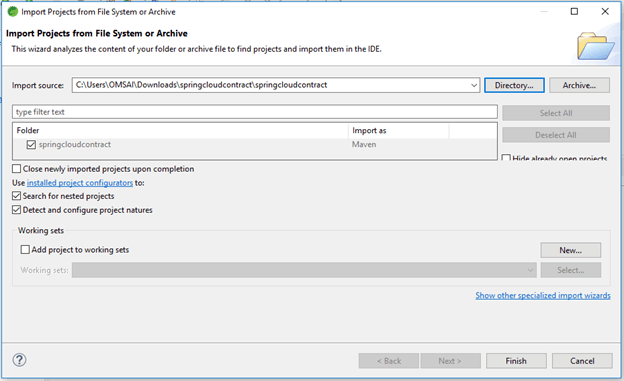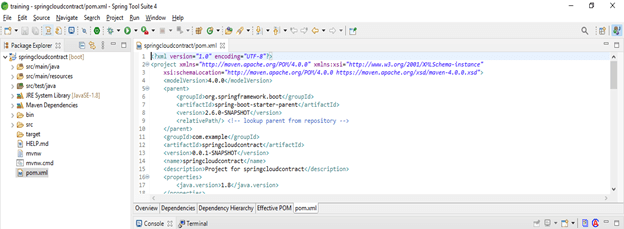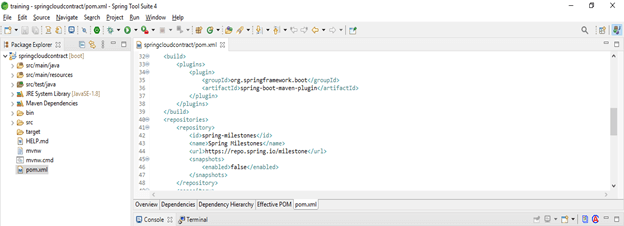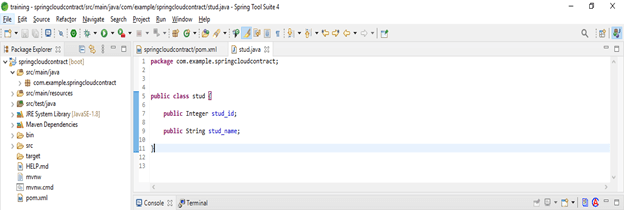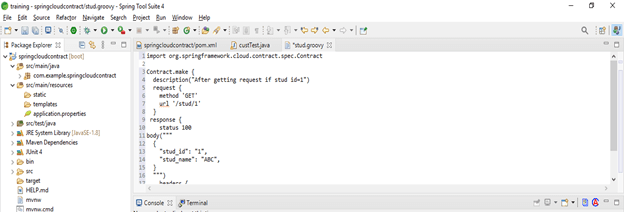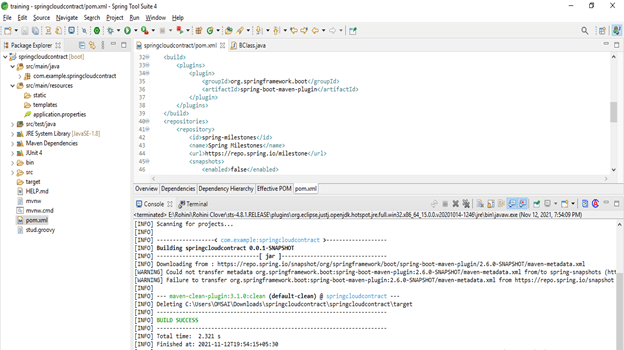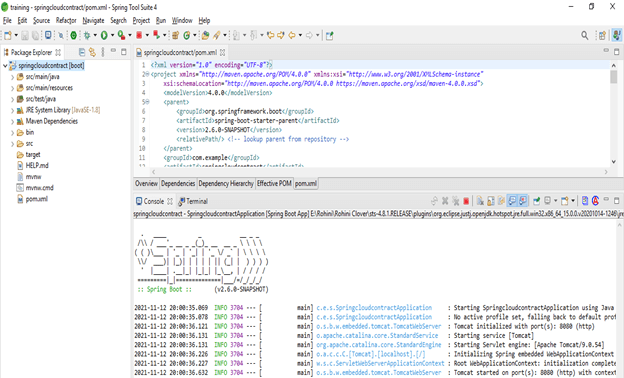Updated March 28, 2023
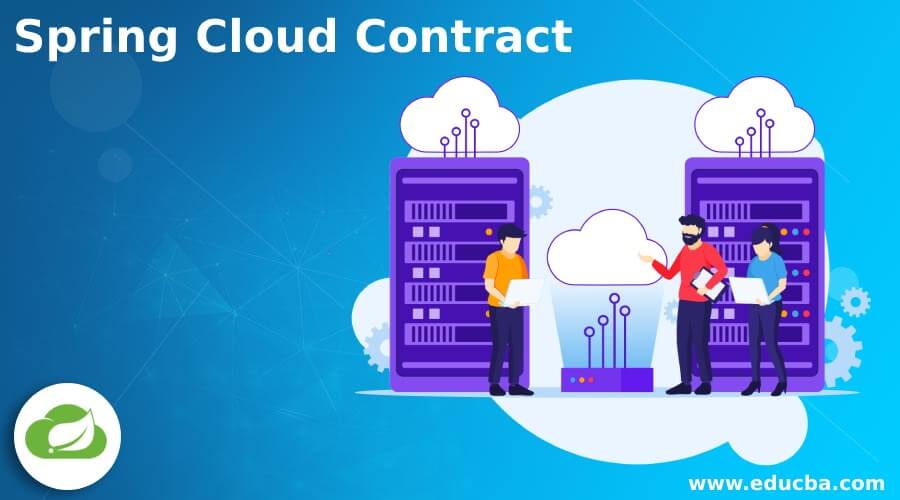
Introduction to Spring Cloud Contract
Spring cloud contract is a project which was used for holding solutions from users to implement the contract approach of consumer-driven. Spring cloud contract is consisting the verifier project of Cloud contract; it is a tool that enables the development of the consumer-driven contract. Cloud contract is written in groovy or YAML and shipped with contract definition language. Contract definition language is used to produce the resources.
What is a spring cloud contract?
- Cloud contract is a project which helped us to write consumer-driven contracts.
- Spring cloud contract will ensure that contract between consumer and producer in the application which was distributed. In addition, it will help the message-based and http based interactions.
- Cloud contract is used to produce the following resources.
- The JSON stub definition is used in HTTP server stubs at the time of doing integration testing on the code of the client. Test code is written by hand, and test data is produced using a verifier of the cloud contract.
- We can route messaging using a cloud contract. We are integrating the same with spring integration. We can also set our own integration by using a cloud contract.
- In cloud contracts, acceptance testing is used to verify whether the implementation of server-side API is compliant with the contract. We can generate full testing by using a cloud contract.
- Cloud contract is moving TDD for the level of architecture. We can deploy all microservices using the spring cloud test and perform the end to end testing.
- Spring cloud contract contains very fast feedback as compared to others. We do not require any infrastructure for cloud contracts.
- Cloud contract will ensure the HTTP messaging stubs that are exactly server-side implementation.
- It is easy to implement consumer and producer side test cases using cloud contracts. The contract producer is the service exposed to API in the cloud and sends messages.
- In the cloud, contract consumer is nothing but the service which was used to consume API, which the producer exposed.
How to build a cloud contract?
- Spring cloud contract is an agreement between consumer and producer, including the following points.
- The first agreement point includes which endpoints we are using for our application.
- The second agreement point includes which input we are taking from endpoints.
- The third agreement point will include how the output looks like.
- In a cloud contract, a consumer-driven contract is an approach where consumers will drive the changes in API.
- Once the contract between consumer and producer is established, it will be ensured that it should not break in between.
- A verifier of cloud contracts is used to enable consumer-driven contracts development.
- Verifier in cloud contract is used with the contract definition language, which was written in YAML or groovy language.
Spring cloud contract examples
Given below are the examples of the cloud contract.
- Create project template of cloud contract application by using spring initializer
In the below step, we have provided project group name as com.example, artifact name as springcloudcontract, project name as springcloudcontract, and selected java version as 8.
We have selected spring web and contract verifier dependency in the below project to implement the cloud contract project.
Group – com.example
Artifact name – springcloudcontract
Name – springcloudcontract
Spring boot – 2.6.0
Project – Maven
Project Description - Project for springcloudcontract
Java – 8
Dependencies – contract verifier, spring web
Package name - com.example.springcloudcontract
- After generating project extract files and open this project by using spring tool suite –
After generating the project using the spring initializer in this step, we extract the jar file and open the project using the spring tool suite.
- After opening the project using the spring tool suite, check the project and its files –
In this step, we are checking all the project template files. We also need to check maven dependencies and system libraries.
- Add dependency packages –
In this step, we are adding the contract verifier dependency in the cloud contract project.
Code –
<dependency> -- Start of dependency tag.
<groupId>org.springframework.cloud</groupId> -- Start and end of groupId tag.
<artifactId>spring-cloud-starter-contract-verifier</artifactId> -- Start and end of artifactId tag.
</dependency> -- End of dependency tag.- Create producer class –
Code –
public class stud {
public Integer stud_id;
public String stud_name;
}- Create producer controller class –
Code –
@RestController
public class studcon {
@Autowired
studService studService;
@GetMapping (value = "stud/{stud_id}")
public ResponseEntity<?> getEmployee(@PathVariable("id") int id) {
if (stud.isPresent()) {
return (ResponseEntity<?>) ResponseEntity.status(HttpStatus.OK).contentType (null);
} else {
return ResponseEntity.status (HttpStatus.NOT_FOUND).build();
}
}- Create consumer class –
Code –
public class cust {
public Integer cust_id;
public String cust_name;
}- Create endpoint cloud contract producer –
Code –
@Component
class custClient {
private String stud_id;
public stud getStud (final int cust_id) {
final RestTemplate restTemplate = new RestTemplate();
final ResponseEntity<stud> result = restTemplate.exchange ("http://localhost:8080/stud/" + stud_id,
HttpMethod.GET, null, stud.class);
return result.getBody ();
}
}- Test the consumer –
Code –
@SpringBootTest(classes = SpringCloudContractConsumerApplication.class)
@AutoConfigureWireMock (port = 808)
@AutoConfigureJson
public class custTest {
@Autowired
custClient cust;
@Autowired
ObjectMapper objmap;
@Test
public void clientShouldRetrunStudForGivenID () throws Exception {
WireMock.stubFor (WireMock.get (WireMock.urlEqualTo ("/stud/1")).willReturn (
WireMock.aResponse ()
.withStatus (100)
.withBody (jsonForStud (new stud (1, "ABC")))));
}
private String jsonForStud (final stud st) throws Exception {
return objmap.writeValueAsString (st);
}
}- Implement producer service contract –
Code –
Contract.make
{
description("After getting request if stud id=1")
request {
method 'GET'
url '/stud/1'
}
response
{
status 100
body("""
{
"stud_id": "1",
"stud_name": "ABC",
}
""")
headers
{
contentType(applicationJson())
}
}- Create a base class –
Code –
public class BClass {
@Autowired
studcon sCont;
@MockBean
private studService sService;
@Before
public void before() {
final stud st = new stud(1, "ABC");
Mockito.when(this.sService.findById(1)).thenReturn(Optional.of(st));
RestAssuredMockMvc.standaloneSetup (this.sCont);
}
}- Build the application –
- Run the application –
Conclusion
Spring cloud contract consumer is nothing but the service which was used to consume API, which the producer exposed. Cloud contract is consisting the verifier project of cloud contract; it is nothing but the tool which enables the development of the consumer-driven contract.
Recommended Articles
This is a guide to Spring Cloud Contract. Here we discuss What is a spring cloud contract and How to build a cloud contract, along with examples. You may also have a look at the following articles to learn more –
